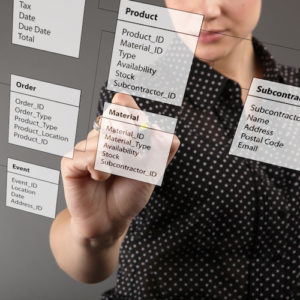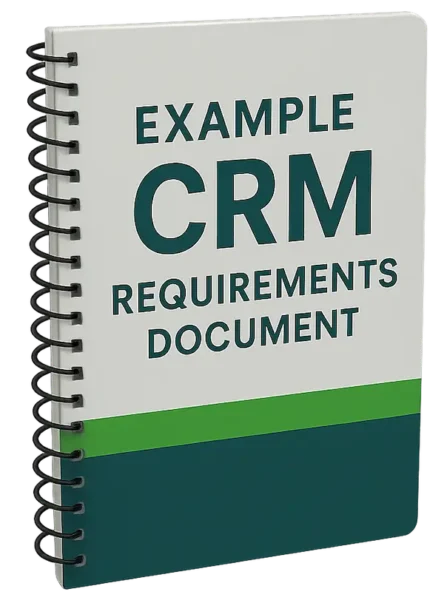Like all databases, a CRM database has tables. Tables are the essential database component, and data is stored in rows within them.
In CRM systems, the Account table stores company information. The Contact table stores information about people.
Different CRM vendors have different names for tables. Microsoft calls them ‘entities.’ Salesforce, HubSpot, and GreenRope refer to them as ‘objects.’ SugarCRM and Zoho both label them ‘modules.’
All CRM systems come with a standard set of tables. These typically include Accounts, Contacts, Opportunities, and Activities.
Various other tables are usually in place to support the CRM system’s functionality.
Extending a CRM System
Often, CRM customers have a business need to create tables that do not meet the standards of a CRM system. Creating custom tables is sometimes called “extending the CRM database.”
A CRM customer may want to import data stored in spreadsheets or legacy databases into their CRM database.
Here are a few simple examples:
A commercial real estate company may want to create a table called Properties to track property addresses and attributes.
A medical device manufacturer might want to create a table called Devices to track which customers have what devices.
A company that provides field service may want to create a table called Service Addresses to track the multiple locations of certain customers.
Third-Party Developers and Custom CRM Tables
Third-party vendors that offer native functionality within a CRM system rely on the ability to create custom tables.
Some third-party applications require many custom database tables to deliver add-on functionality. For example, FinancialForce Professional Services Automation adds 38 objects (tables) to a Salesforce org or database.
Can All CRM Systems Be Extended?
Almost all CRM systems allow custom fields to be added to standard tables. However, not all CRM systems allow custom tables to be added to an individual CRM database instance.
A commonly overlooked factor by buyers evaluating different CRM offerings is whether custom tables can be added to a vendor’s CRM database.
Depending on your company’s business needs, the ability to extend a CRM database may be an essential consideration when evaluating CRM systems.
Here are some of the vendors that allow for an individual customer to add custom tables to their CRM database instance:
- Microsoft
- Salesforce.com
- SugarCRM
- Zoho
- Creatio
- Oracle
- GreenRope




